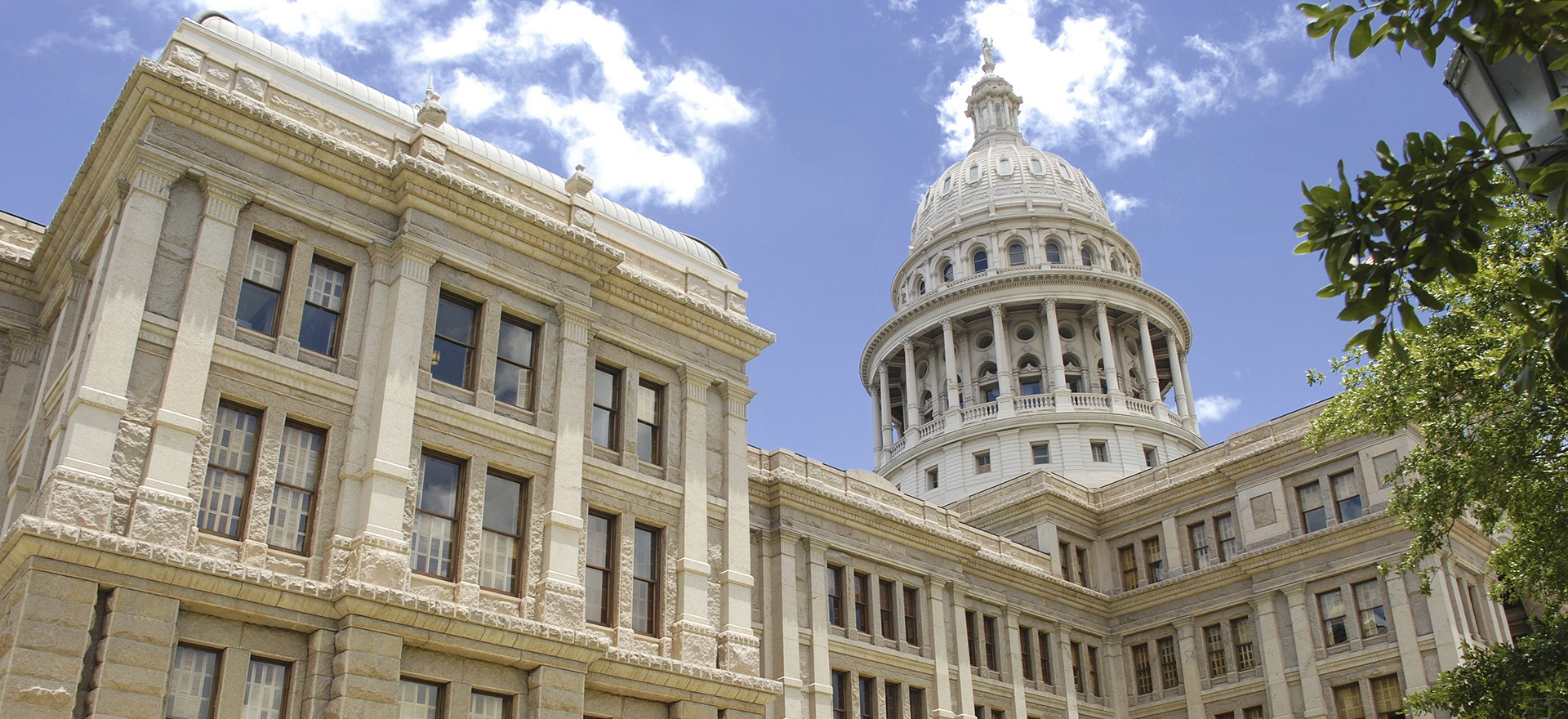Session Recap: The big school safety bill

Texas Legislature School Safety
Date Posted: 5/29/2019 | Author: Mark Wiggins
 One of the largest education-related bills the 86th Texas Legislature passed was Senate Bill (SB) 11 by Sen. Larry Taylor (R-Friendswood), the omnibus school safety bill passed in the wake of the tragic school shooting in Santa Fe, Texas, in May 2018.
One of the largest education-related bills the 86th Texas Legislature passed was Senate Bill (SB) 11 by Sen. Larry Taylor (R-Friendswood), the omnibus school safety bill passed in the wake of the tragic school shooting in Santa Fe, Texas, in May 2018.
The final version of the ATPE-supported SB 11 contained a number of provisions, the most important of which is a school safety allotment, which may be used for a wide variety of purposes, including securing facilities, purchasing security technology, hiring security personnel, and providing training. According to the fiscal note, the allotment is expected to provide an additional $9.72 per student in average daily attendance (ADA) at a cost of roughly $100 million over the next two years. The other major provisions of SB 11 are as follows:
MULTIHAZARD EMERGENCY OPERATIONS PLANS
- Each district's multihazard emergency operations plan must include measures to ensure employees have classroom access to direct communications with emergency personnel, and the district's communications infrastructure must be adequate to allow for communication during an emergency.
- A multihazard emergency operations plan must include a chain of command, provisions that address physical and psychological safety, provisions ensuring the safety of students in portable buildings and people with disabilities, provisions for providing immediate notification to parents of a significant threat, training and strategies for suicide prevention, and implementation of trauma-informed policies.
- If a district does not comply with the requirements for its multihazard emergency operations plan, the school board must hold a public hearing. The commissioner may also appoint a conservator or board of managers to order the district to put a plan in place. If the district refuses, the conservator or board of managers may take over the district.
- Local school safety and security committees must include law enforcement and emergency management officials, provide periodic recommendations to update the district's multihazard emergency operations plan, consult with local law enforcement regarding ways to increase law enforcement presence near district campuses, and hold regular public meetings.
- The Texas School Safety Center (TSSC) may audit a district's plan and must establish a regular review cycle.
THREAT ASSESSMENT & SAFE AND SUPPORTIVE SCHOOL TEAMS
- Each district's board of trustees must appoint a threat assessment team and a safe and supportive school team to serve at each campus to assess threats and to develop and implement a new safe and supportive school program developed by the Texas Education Agency (TEA) and the TSSC.
- Teams must immediately report to the superintendent any determination that a person poses a threat to himself or others.
- Teams must report demographic data back to the TEA regarding assessments and disciplinary actions.
- TSSC must adopt model policies and procedures to assist districts in training threat assessment teams.
TEXAS CHILD MENTAL HEALTH CARE CONSORTIUM
- The bill creates a new Texas Child Mental Health Care Consortium, established to leverage the expertise of institutions of higher education to address urgent mental health care challenges.
- The consortium will establish a network of comprehensive child psychiatry access centers and expand telemedicine for identifying mental health needs.
- The consortium will be funded using $99 million from state general revenue.
OTHER PROVISIONS
- The commissioner of education must adopt rules regarding best practices for school district and charter school facilities that provide a secure and safe environment.
- District improvement plans must include a trauma-informed care policy.
- The commissioner must provide a waiver of operational and instructional time for a district that requires each educator to attend a school safety training course, provided that the waiver does not result in an inadequate number of minutes of instructional time for students or reduce operational and instructional time by more than 420 minutes.
- Physical health, mental health, and suicide prevention are added to the Health curriculum.
- The State Board of Education (SBOE) must require each district to incorporate instruction on digital citizenship and cyberbullying.
- Suicide early warning signs, mental health, and identifying community resources for suicide risks and behavioral health concerns are added to the responsibilities of local school health advisory committees (SHAC).
- A district that receives a bomb threat or terroristic threat must provide immediate parental notification.
- The commissioner must adopt rules providing school evacuation procedures and designating school drills, including fire exit, lockdown, lockout, shelter-in-place, and evacuation drills.
- The TEA must develop a rubric for use by the regional education service centers (ESC) in identifying local mental health resources. Each ESC must create an inventory of local resources and report it to the TEA.
- The TEA must develop a statewide plan for mental health, which includes connecting people to local mental health resources. The plan must be used to revise the agency's long-term strategic plan and progress must be reported to the legislature.
- Districts may issue bonds for retrofitting vehicles for safety or security purposes.
Full implementation of SB 11 will require multiple entities to work in coordination with each other and districts, as well as what will likely be significant rulemaking to implement aspects of the law.
CONVERSATION
RECOMMENDED FOR YOU

12/19/2025
Teach the Vote’s Week in Review: Dec. 19, 2025
Happy Holidays from ATPE! The ACLU of Texas is challenging SB 12 in federal court, and ATPE has distributed candidate surveys to those running for statewide, legislative, and SBOE seats.

12/18/2025
Gov. Abbott’s property tax promise and the split in the Texas GOP
Property taxes aren’t just a political talking point. They’re the main revenue source for vital local services, including police, fire, and public education.

12/12/2025
Dec. 8 filing deadline sets the stage for 2026 elections
Now’s the time to confirm your voter registration and update it if necessary.

